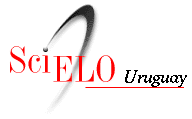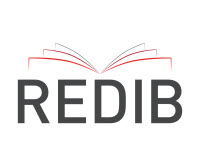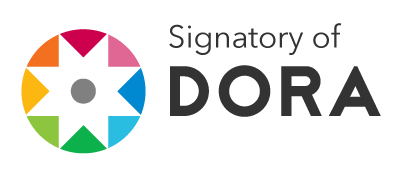Prácticas de mediación de información en bibliotecas académicas de Argelia
un estudio de caso de la Universidad Sétif 2
Resumen
Este artículo investiga las prácticas de mediación de la información en las bibliotecas académicas de Argelia, con un estudio de caso de la Universidad Mohamed Lamine Debaghine Setif 2. Su objetivo es explorar la comprensión de los bibliotecarios sobre los conceptos y principios de la mediación de la información, así como los desafíos y oportunidades de mejora.
El estudio utilizó un enfoque descriptivo, encuestando a treinta bibliotecarios utilizando un muestreo estratificado para garantizar la representación de ambos bibliotecarios (con contacto directo con el usuario y aquellos que no). El instrumento de encuesta constó de ocho preguntas divididas en dos apartados temáticos, junto con un apartado de datos personales. El análisis estadístico de los datos arrojó un conjunto de resultados, principalmente relacionados con la necesidad de fortalecer las prácticas de mediación de información en las bibliotecas académicas, enfocándose en conectar a los estudiantes con la información y promover la alfabetización digital.
El estudio también reveló una variedad de métodos utilizados actualmente en las prácticas de mediación de información. La mayoría de los bibliotecarios expresaron la necesidad de capacitación en metodologías de investigación, recuperación de información y ética de la información. Los bibliotecarios enfrentan varios desafíos, siendo el más destacado comprender las necesidades de información de los estudiantes y ayudarlos a cerrar la brecha de alfabetización digital e informacional.
Descargas
Citas
Andersdotter, K. (2023). Artificial intelligence literacy in libraries: Experiences and critical impressions from a learning circle. Journal of Information Literacy, 17(2). https://doi.org/10.11645/17.2.14
Anderson, D. (2010). Information, Mediation, and Users: A View of the Internet’s Evolving Relationship to Information and Library Science. Interface: The Journal of Education, Community and Values, 10(9).
Azevedo, K. R. D., & Ogécime, M. (2019). O papel do bibliotecário como mediador da informação na busca pelo letramento informacional. RDBCI Revista Digital de Biblioteconomia e Ciência Da Informação, 18, e020001. https://doi.org/10.20396/rdbci.v18i0.8654473
Boisvert, D. (2015). Calenge, Bertrand. Les bibliothèques et la médiation des connaissances. Éditions du Cercle de la librairie, 2015. 147 p. ISBN 978-2-7654-1465-0. Documentation et bibliothèques, 61(4), 188. https://doi.org/10.7202/1033440ar
Coiro, J., Knobel, M., Lankshear, C., & Leu, D. J. (Eds.). (2008). Handbook of Research on New Literacies. Routledge. https://doi.org/10.4324/9781410618894
Cox, A. M., & Mazumdar, S. (2024). Defining artificial intelligence for librarians. Journal of Librarianship and Information Science, 56(2), 330–340. https://doi.org/10.1177/09610006221142029
De Bogui, S. (2015). Le rôle de médiation des bibliothèques patrimoniales en milieu universitaire. Documentation et bibliothèques, 54(4), 257–264. https://doi.org/10.7202/1029188ar
Ewing, M. K., & Hauptman, R. (1992). The Reference Librarian and Implications of Mediation. Psychology Press.
Grabowsky, A., & Weisbrod, L. (2020). The Effectiveness of Library Instruction for Graduate/Professional Students: A Systematic Review and Meta-Analysis. Evidence Based Library and Information Practice, 15(2), 100–137. https://doi.org/10.18438/eblip29657
Hafner, A. W., & Camarigg, V. M. (1992). The Librarian as Mediator. In The Reference Librarian and Implications of Mediation. Routledge.
IFLA Information Literacy, J. (2006, August). Guidelines on Information Literacy for Lifelong Learning. International Federation of Library Associations and Institutions (IFLA). https://repository.ifla.org/handle/123456789/193
Leckie, G., & Fullerton, A. (1999). The Roles of Academic Librarians in Fostering a Pedagogy for Information Literacy. Association of College & Research Libraries.
Lo, L. S. (2024a). Evaluating AI Literacy in Academic Libraries: A Survey Study with a Focus on U.S. Employees. College & Research Libraries, 85(5). https://doi.org/10.5860/crl.85.5.635
Lo, L. S. (2024b). Transforming academic librarianship through AI reskilling: Insights from the GPT-4 exploration program. The Journal of Academic Librarianship, 50(3), 102883. https://doi.org/10.1016/j.acalib.2024.102883
Michalak, R. (2023). From Ethics to Execution: The Role of Academic Librarians in Artificial Intelligence (AI) Policy-Making at Colleges and Universities. Journal of Library Administration, 63(7), 928–938. https://doi.org/10.1080/01930826.2023.2262367
Ogunmodede, T. A., Oyetola, S. O., G, A., Aboyade, M., A., & Oyeboade, S. A. (2023). Librarianship in The Era of Digital Divide: Review of Literature. International Journal of Library and Information Science Studies, 9(5), 53–66.
Righetto, G., De Brito, T. R., & Vieira Vitorino, E. (2022). User Studies, Mediation of Information and Information Literacy in the Contexts of Social Vulnerability: Possible Dialogues. Revista Interamericana de Bibliotecología, 45(3), e344054. https://doi.org/10.17533/udea.rib.v45n3e344054
Roe, D., & Moody, D. (1999). The Librarian as Mediator: A Significant Change in the Educational Role of Librarians. http://hdl.handle.net/11213/15957
Sandoz, D. (2010). Repenser la médiation culturelle en bibliothèque publique: Participation et quotidienneté [Diplôme de conservateur de bibliothèque, ENSSIB]. https://www.enssib.fr/bibliotheque-numerique/documents/48311-repenser-la-mediation-culturelle-en-bibliotheque-publique-participation-et-quotidiennete.pdf
Solimine, G. (2014). The role of libraries and transformations in scientific communication. Lettera Matematica, 1(4), 185–189. https://doi.org/10.1007/s40329-014-0032-6
Thiruppathi, K. (2024). Librarian’s Role in The Digital Age: Reimagining the Profession in The ERA of Information Abundance. International Journal of Library and Information Science (IJLIS), 13(1), 1–9.
Vahid Aqili, S., & Isfandyari Moghaddam, A. (2008). Bridging the digital divide: The role of librarians and information professionals in the third millennium. The Electronic Library, 26(2), 226–237. https://doi.org/10.1108/02640470810864118
Wormell, I. (2016). Librarians beyond mediation. Biblioteca Universitaria, 19(1), 3–14. https://doi.org/10.22201/dgb.0187750xp.2016.1.137
Derechos de autor 2024 Abdelghani Bendridi

Esta obra está bajo licencia internacional Creative Commons Reconocimiento 4.0.







.jpg)




















